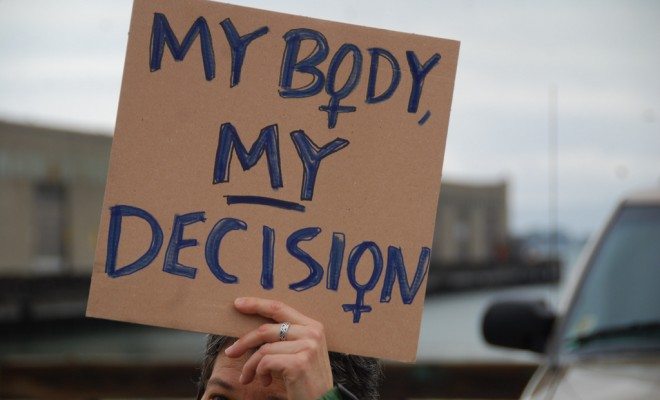 Image courtesy of [Steve Rhodes via Flickr]
Image courtesy of [Steve Rhodes via Flickr]
Law
Thanks SCOTUS: A Victory for Reproductive Rights
A recent U.S. Supreme Court decision is a victory for women’s rights, reproductive rights proponents, and physicians. It’s also a failure for hypocritical, radically immoral Republican men in North Carolina.
The court decided today to avoid reviewing a law that would force doctors to show and describe a fetal ultrasound to a patient immediately before an abortion, even if she resists. A U.S. District Judge previously struck down the law in 2014 for violating the First Amendment, but state officials filed an appeal to overturn this decision. The law was again branded unconstitutional by the U.S. Court of Appeals for the Fourth Circuit. In March of this year, North Carolina officials petitioned the Supreme Court in the hopes that the highest court would uphold their woman-hating law. Luckily, SCOTUS has better cases to review than this one, so the previous decisions to reject the law stand.
What’s so disturbing about the ultrasound law is that it symbolizes the too-widely-accepted belief that women are not able to make informed decisions about their own bodies. Lawmakers in North Carolina argued that this law was a protective measure under the umbrella of “informed consent” and that the law simply ensured that women made a “mature and informed” choice about the matter. But forcing doctors to deliver anti-abortion messages on behalf of the state, even when a woman does not agree to hear the information, isn’t consent.
The law used very detailed language that legally bound physicians to tell their patients about alternative options to abortion, such as “keeping the baby or placing the baby for adoption.” It also forced doctors to place the ultrasound image in front of the woman’s face and describe the “anatomical and physiological characteristics” to the patient before permitting an abortion. The law applied to women who were survivors of rape and incest, and those who discovered severe fetal abnormalities. Even more frustrating is the lawmakers’ incorrect assumption that women are inherently uninformed. Sixty-one percent of abortions are undertaken by women who already have one or more child, so they aren’t naïve about the implications of pregnancy or the responsibilities of parenthood. They don’t need the “help” of male lawmakers telling them that their decisions are invalid.
Plaintiffs in the lawsuit included the Center for Reproductive Rights, Planned Parenthood, and the American Civil Liberties Union. Last year, they argued in their brief that the law:
Commandeers unwilling physicians to use their own voice and expressive conduct to communicate the state’s message against abortion.
The brief further argued that:
It commandeers physicians to convey this message in a uniquely intrusive way — during a medical procedure while the patient is vulnerable and disrobed on an examination table with an ultrasound probe inside or on her.
The Supreme Court’s decision to deny another review of this law may be a victory today, but there are more anti-abortion laws making headlines that the justices will likely have to address soon. For example, an abortion regulation law in Mississippi threatens to close the last abortion clinic in the state. In a similar vein, a Texas regulation currently making its way through the legal system requires clinics to meet the same building equipment and staffing standards that hospitals must meet, reducing the number of abortion clinics in the state. The Texas law is particularly concerning, as it will cause nearly one million women of reproductive age to live more than 150 miles from an abortion clinic, making abortions even more inaccessible to women of limited income or those who have no disposable time to travel the obscenely long distances to a clinic in order to have the procedure.
Reproductive rights are women’s rights, not North Carolinian, lawmaking men’s rights. I’m glad to see that the Supreme Court, if even just passively, recognizes that.








Comments